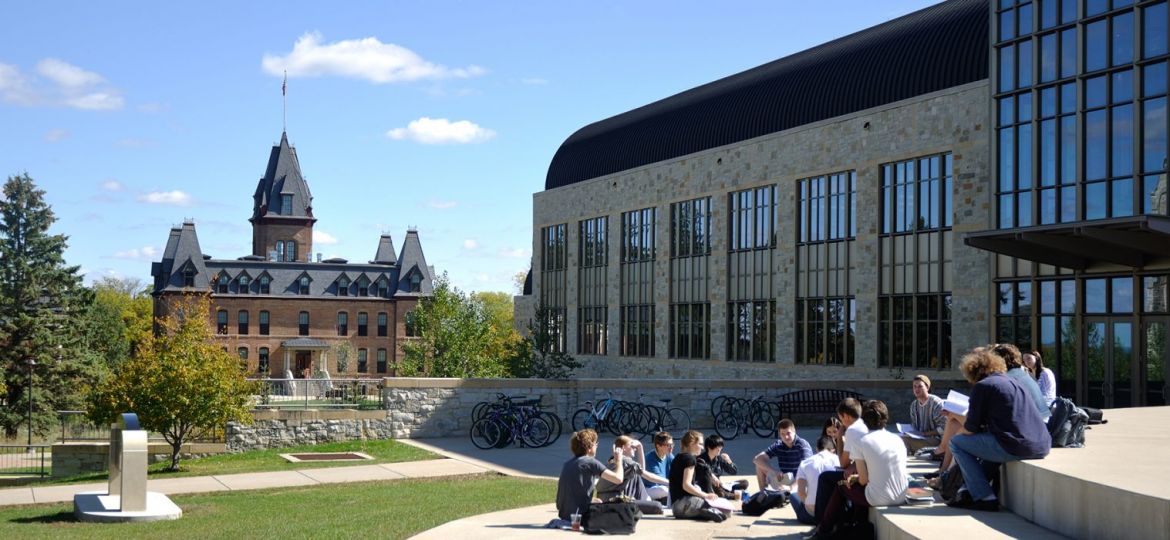
St. Olaf has spearheaded several efforts to retain and enroll more students.
While the College maintains high retention compared to similar institutions, the percentage of retained students has fallen in recent years, as the Messenger reported in March 2019. Due to this recent drop, the College developed a Retention Committee, comprised of twelve faculty and staff members, to explore what has been done and what needs to be done to increase student retention, said Vice President for Student Life Hassel Morrison.
The current Retention Committee began as a task force in academic year 2017-18 and does not utilize a working budget in its efforts. Rather, the Committee is in place to develop specific goals for retention, assess current programs across campus and establish pilot programs for working to retain students, Morrison said.
As an institution, St. Olaf maintains a goal of reaching 95 percent first-to-second year student retention, which sits 5 percent above the 90 percent mark observed in 2018 by the College in its Institutional Effectiveness and Assessment data.
One area of emphasis for retention efforts targets sophomore students, which Morrison identified as a group that does not get enough attention yet is critical for maintaining high retention rates.
The emphasis on sophomore students is highlighted by the lack of attention given to this group at other institutions, Morrison said. Morrison also alluded to data which has shown that a majority of students who leave their respective institutions do so around sophomore year.
To focus these efforts, the College created the Sophomore Year Experience Committee, chaired by the Joshua Lee, assistant dean of students for programming and assessment. The Committee is currently assessing the possible need for a Sophomore Year Experience, Morrison said. The Experience could include an event during Week One welcoming sophomores back to campus with a “celebration,” according to a Retention Programs and Interventions report provided to the Messenger by Morrison.
Other programs and interventions outlined in the report include alumni and staff mentoring programs for TRIO McNair Scholars and LGBTQIA+ students, and the changing of Academic Dismissal to Academic Suspension for struggling students. The suspension would allow students to take necessary time off and return to classes a semester or a year later, Morrison said.
In addition to specific institutional programs or strategies, there is a need to develop a more supportive campus culture for retaining “our friends and our family here at the College,” Morrison said.
“Retention is actually a community effort,” Morrison said. “We’re trying to continue the idea that it’s not one person’s responsibility, it’s a community responsibility.”
Looking forward, the College should assess its technological infrastructure to ensure that it is supporting student success and retention, Morrison said. The changes to the class registration and Student Information Systems are one example of new technological infrastructure.
“Retention is actually a community effort. We’re trying to continue the idea that it’s not one person’s responsibility, it’s a community responsibility.”
– Hassel Morrison
“Anything that would make it accessible and easier for students and faculty, and staff, to navigate,” Morrison said. This would not require any investment upfront, but would rather encompass a general assessment of current process and recommendations for improvements, Morrison said.
And Morrison offered that a comparative approach could be used to assess current infrastructure.
“We may find that we’re in a good place,” Morrison said. “But it’s always smart to look into how we measure up.”
Finally, Morrison said that he wants the College to hire a retention specialist that could devote more time to assess the College’s retention efforts and foster communication between relevant groups across campus. Part of this role would include emphasizing what St. Olaf currently excels at in regards to retention.
“I think that we need to do a better job of celebrating the things we do well,” Morrison said. “And also making people aware of the things that are going great, so we are able to have a multi-faceted approach to how we look at retention.”

